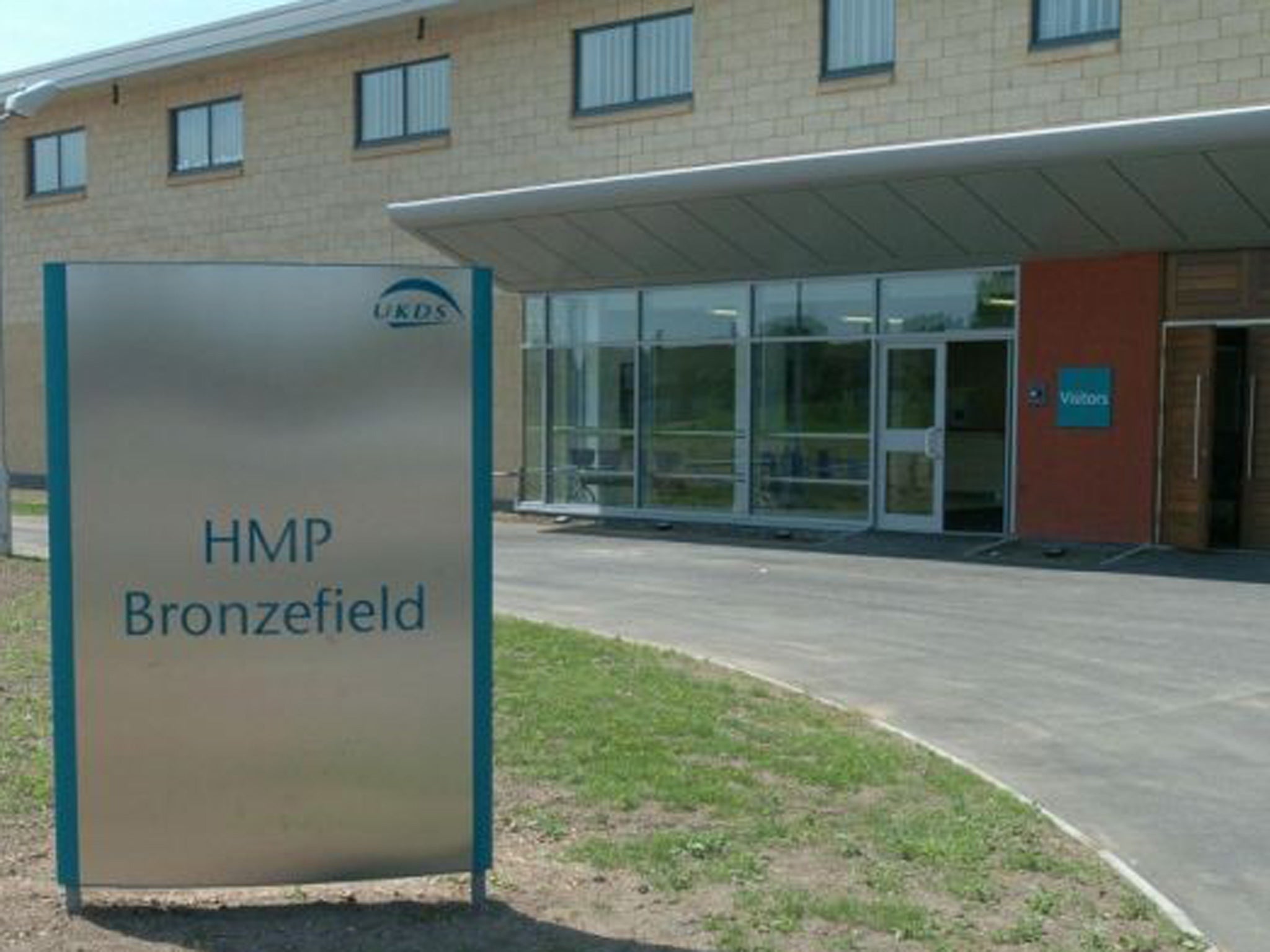Surge in self-harm incidents at scandal-hit women’s prison where newborn baby died
The report noted Covid-19 restrictions ‘comprised ability to treat women fairly and humanely.’

Your support helps us to tell the story
From reproductive rights to climate change to Big Tech, The Independent is on the ground when the story is developing. Whether it's investigating the financials of Elon Musk's pro-Trump PAC or producing our latest documentary, 'The A Word', which shines a light on the American women fighting for reproductive rights, we know how important it is to parse out the facts from the messaging.
At such a critical moment in US history, we need reporters on the ground. Your donation allows us to keep sending journalists to speak to both sides of the story.
The Independent is trusted by Americans across the entire political spectrum. And unlike many other quality news outlets, we choose not to lock Americans out of our reporting and analysis with paywalls. We believe quality journalism should be available to everyone, paid for by those who can afford it.
Your support makes all the difference.Self-harming has almost doubled in the past two years years at a scandal-hit jail where a newborn baby recently died after her mother gave birth alone in a cell.
A new report by the Independent Monitoring Board of HMP Bronzefield found that there were on average 220 self-harm incidents a month, compared to 91 two years ago. In June 1021 alone, there were 371 instances.
The figures represent an increase of 140 per cent in comparison to a 47 per cent rise across all women inmates nationwide. As Europe’s largest women’s jail, the numbers from Bronzefield may be significantly higher due of its size.
The report reads: “The board notes that the severe regime restrictions necessary to control Covid-19 compromised the ability to treat women fairly and humanely, and that prisons are used as a ‘place of safety’ for severely mentally ill women.”
Women in Prison (WIP), a charity providing support to women affected by the criminal justice system, says the increases are part of “a wider trend of declining mental health for women in prison” over the past decade and the Bronzefield figures serve as a “sobering reminder” that prisons “do not enable recovery, but prevent it.
Sorana Vieru, head of campaigns and public affairs at WIP, told The Independent: “The number of self-harm incidents in women’s prisons has been rising for a number of years, and has shot up since the start of the pandemic and the implementation of strict prison regimes, which highlights the devastating mental health crisis for women in prison.
“Self-harm incidents have now hit record levels in women’s prisons and we still don’t know what the full impact of the pandemic will be. While restrictions in the community have gradually eased, this hasn’t been the case for many women in prison, who have remained confined to their cells for up to 23 hours a day.
“However, these increases are part of a wider trend of declining mental health for women in prison and serve as a sobering reminder that prisons are not safe and do not enable recovery, but prevent it.
“These statistics are even more worrying in the context of the Government’s plans to build 500 new prison places for women. Instead, the Government can and must invest in community-based services such as Women’s Centres that support women to tackle the issues that sweep them into crime in the first place, like domestic abuse and mental ill-health.”
The Ministry of Justice announced in January extra investment into prison places to improve conditions for women in custody. Plans include building 500 new prison places in existing women’s prisons.
The figures from Bronzefield follow the publication damning report by the Prison and Probation Ombudsman (PPO) last month, which highlighted a series of failings in the care for Ms A, 18, who lost her newborn child on 27 September 2019 at HMP Bronzefield.
It details a disturbing series of events that culminated in the young woman, who cannot be named, being in “constant pain” on the night of 26 September and eventually passing out while giving birth.
She had rung her cell bell twice in the evening, first at 8.07pm and again 25 minutes later, asking to see a nurse, but no one tended to her. She then ended up having to sit on the toilet and not being able to get to the cell bell to call for help again, according to the report.
After delivering the baby, Ms A had to bite through the umbilical cord herself before trying to wipe up the blood on the floor, investigators said.
Sue McAllister, the ombudsman, said Ms A was failed by an “inflexible, unimaginative and insufficiently trauma-informed” approach to care and “outdated and inadequate” maternity services at HMP Bronzefield.
Deputy Prime Minister and Justice Secretary, Dominic Raab, said: “These events are harrowing, unacceptable and should never happen to any woman or child. My deepest condolences remain with those affected.
“We have already implemented the recommendation in the Prison and Probation Ombudsman’s report. We have put in place important improvements to the care received by women in custody, and across government we must make sure that expectant mothers in prison get the same support as those in the community.”
Join our commenting forum
Join thought-provoking conversations, follow other Independent readers and see their replies
Comments